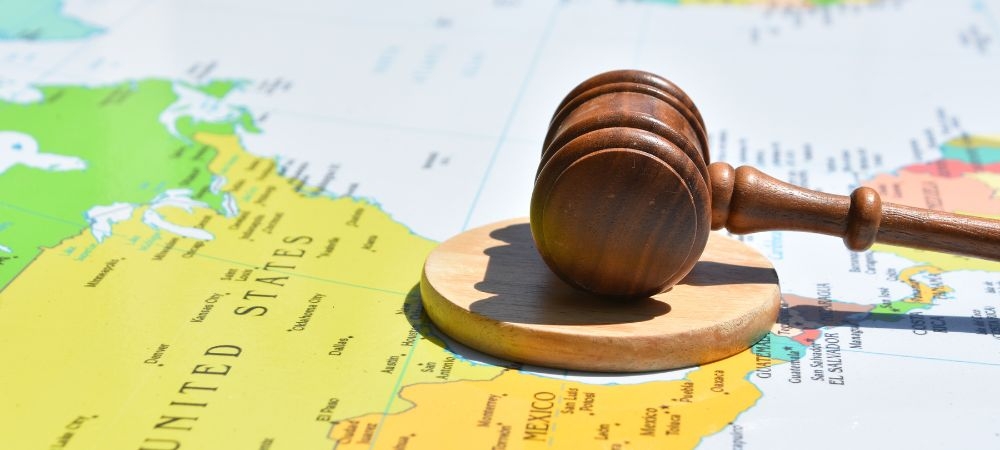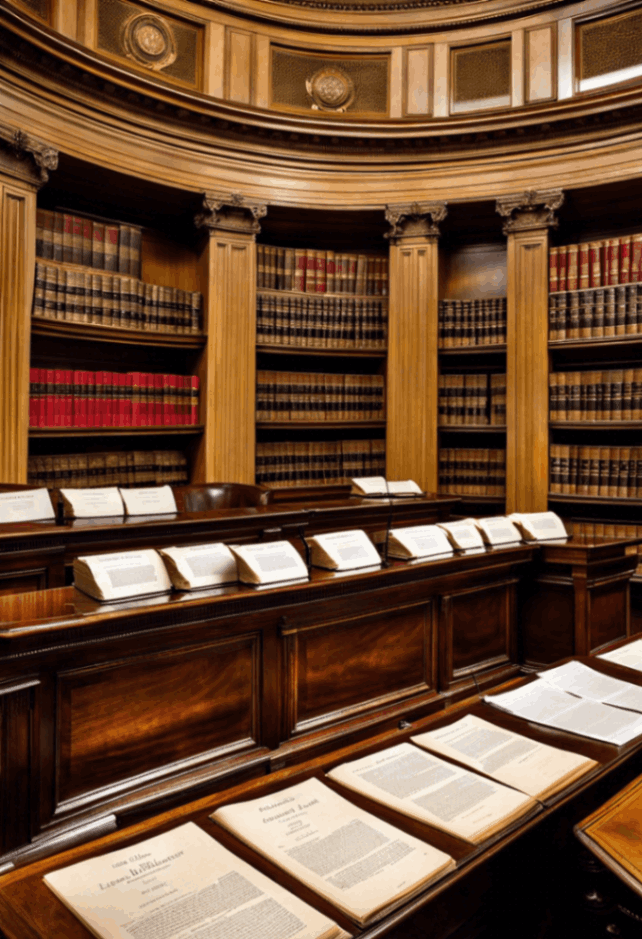

The International Criminal Court (ICC), oh what a journey it's been! The whole idea of having a permanent court to prosecute individuals for the gravest crimes was not something that just popped up overnight. For additional information check out below. No, there's a lot of history behind it, and its kinda fascinating.
Back in the days after World War II, people were like "never again" after seeing those horrific atrocities. So, they set up the Nuremberg and Tokyo tribunals to put war criminals on trial. But these were temporary courts, ya know? They did their job but then they were gone. Folks realized that we can't keep setting up new courts every time something terrible happens.
Fast forward to the 1990s. check . Conflicts in places like Yugoslavia and Rwanda showed again that humanity has not learned its lesson. Horrible stuff went down, and once more ad hoc tribunals were established to deal with it. But still, no permanent solution was in sight.
Then came 1998 a pivotal year! Representatives from around 120 countries gathered in Rome for a diplomatic conference with one goal: establish a permanent international criminal court. After intense negotiations seriously, it wasn't all smooth sailing they adopted the Rome Statute on July 17th, 1998. Hooray! This document laid down the legal foundations for what would become the ICC.
But hey, don't think everything was peaches and cream from there on out. It took four more years before enough countries ratified the Rome Statute for it to actually come into force on July 1st, 2002. Can you believe that? And even now some big players aren't part of this club; notable absentees include the United States, China, and Russia among others.
So there you have it a bit of background on how the ICC came to be established despite numerous hurdles along the way. It's not perfect by any means but represents an ongoing effort towards global justice which is better than doing nothing at all!
The International Criminal Court (ICC) is one of the most significant developments in international law, but not everyone knows what it's all about. So let's dive into its jurisdiction and scope, shall we?
First off, the ICC ain't just any court; it's a big deal on the world stage. Established by the Rome Statute in 2002, its main goal is to prosecute individuals for some really serious crimes we're talking genocide, war crimes, crimes against humanity, and recently added, the crime of aggression. But hold on a minute! The ICC doesn't have free rein to do whatever it wants.
Jurisdiction? It's kinda like asking where does this court get to stick its nose in. The ICC can only prosecute crimes that happened after July 1st, 2002 no going back in history books here. Also, there's something called complementarity, which means the ICC steps in only when national courts can't or won't do their job. If your countrys legal system is working fine and dandy dealing with these heinous acts, then sorry ICC, you gotta step aside.
But wait! Theres more! The ICC's reach isn't global by default. It has jurisdiction over crimes committed on the territory of states that are party to the Rome Statute or by nationals of those states. As of now, over 120 countries are members but some big players aren't part of this club like United States, China and Russia. Theyve got their reasons but thats another story for another day.
Now lets talk scope - because what's a court without limits? The ICC doesnt handle every atrocity under the sun; it focuses on "the most serious crimes of concern to the international community as a whole." In plain English: if it aint massive or widespread enough to shock humanity's conscience it probably wont make it onto their docket.
Oh boy! One thing people often mix up is thinking the ICC replaces local justice systems - nope! That's far from true. Its role kicks in when national systems fail or are unwilling to genuinely carry out investigations and prosecutions.
Another major point worth mentioning is how cases get brought before this court. Three ways exist: referrals by member states themselves (self-referrals), referrals by UN Security Council (yep they have power here too!), and investigations initiated proprio motu by Prosecutor herself/himself based on info received from various sources including NGOs.
And oh yeah did I mention politics? You betcha! Politics plays quite an influential role given geopolitical dynamics affecting who gets tried at times leading critics arguing biasness towards African nations compared other regions globally causing controversy around fairness perception even till today!
So there you have it folks: A humanly imperfect yet crucial piece within broader framework aimed ensuring accountability justice delivered against gravest offenses possible across globe albeit facing inherent challenges limitations along journey ahead shaping future landscape international criminal jurisprudence itself!
Phew...that was quite mouthful huh?!
The International Criminal Court (ICC) has been instrumental in shaping international justice through its key cases and precedents. Established by the Rome Statute in 2002, the ICC aims to hold individuals accountable for crimes like genocide, war crimes, and crimes against humanity. But it's not all smooth sailing; the journey's fraught with complexities and controversies.
One of the landmark cases is that of Thomas Lubanga Dyilo. Back in 2012, Lubanga became the first person ever convicted by the ICC. He was found guilty of conscripting child soldiers under the age of 15 during the conflict in the Democratic Republic of Congo. It ain't easy to set a precedent, but this case did just that by highlighting how seriously the international community views child soldiering.
Then theres Jean-Pierre Bemba Gombos case, which threw quite a curveball into how command responsibility is interpreted. Bemba was initially convicted for his militia's atrocities in Central African Republic we're talking murder, rape, and pillaging here only to have his conviction overturned on appeal in 2018! The Appeals Chamber ruled that he couldn't be held criminally liable for failing to prevent or punish his troops' actions due to flaws in trial procedures. This decision surprised many but also stressed how crucial fair trial standards are.
Oh boy, we can't forget about Omar al-Bashir either. Sudan's former president has been wanted by the ICC since 2009 on charges of genocide and other serious offenses committed in Darfur. Despite arrest warrants being issued, he's managed to evade custody thanks to political maneuvering and lack of cooperation from some States Partiestalk about frustrating!
While these high-profile cases garner much attention, they also expose gaps within international law enforcement mechanisms. The ICC doesn't have its own police force; it relies heavily on member states cooperation for arrests and enforcement actionsa situation that's far from ideal sometimes.
In addition to individual accountability, these cases showcase broader principles like complementarity where national jurisdictions take precedence over international prosecution unless they're unwilling or unablea principle seen both as a strength and a weakness depending on who you ask!
But hey! Lets not pretend everything is perfect at Hague headquartersthe court faces criticisms toofrom accusations regarding geopolitical bias against African leaders (though non-African investigations do exist), perceived inefficiencies due lengthy trial processes...the list goes on.
In conclusion: while imperfectheck what system isnt?the key cases tried by ICC provide critical jurisprudence shaping modern-day norms around human rights violations & accountability globallyeven if progress feels slow at times...Rome wasn't built overnight after all right?!

The relationship between the International Criminal Court (ICC) and national courts is a bit complex, to say the least. It ain't always straightforward, and sometimes it feels like a tug-of-war. But hey, let's dive into it.
First off, the ICC was established to deal with crimes that are just too big for any one country to handle on its own. We're talking about genocide, war crimes, and crimes against humanity. These are not your everyday criminal cases. National courts might not have the means or even the will to prosecute these kinds of offenses effectively.
Now, you might think that since we have the ICC, national courts dont need to bother with these serious crimes anymore. But that's not really how it works. The ICC operates on what's called the principle of complementarity. Basically, this means that the ICC only steps in when national courts are either unwilling or unable to prosecute criminals themselves.
Let's break this down a bit more. If a country is doing its jobinvestigating and prosecuting international crimesthen the ICC wont interfere. It's like a backup plan; it's there if things go south at the national level. But if a country decides to sweep things under the rug or drag its feet? Well then, that's when the ICC steps in.
However, this isn't without its problems. Some countries feel like their sovereignty is being undermined by an international body poking around in their affairs. Others worry that they could be unfairly targeted for political reasons. There's also concern about double jeopardywhat if someone gets tried by both their national court and then again by the ICC? That would be quite messy!
There's another tricky aspect too: gathering evidence and securing witnesses can be difficult across borders. National courts often have better access to local resources and information than an international body based far away.
So while having both systemsthe ICC and national courtssounds good on paper, making them work together smoothly is easier said than done! It's kinda like trying to get two different software programs to talk to each other; sometimes they just don't want to cooperate.
On top of all this, there's funding issues too! National courts aren't always well-funded themselves, let alone having extra cash lying around for collaborating with an international entity like the ICC.
In conclusionI mean reallyis there ever going be a perfect system? Probably not! But understanding these dynamics helps us appreciate why such relationships between various judicial bodies matter so darn much in our global quest for justice.
And oh boyyou'd better believe it's gonna stay complicated!
Oh boy, when it comes to enforcing international law, the International Criminal Court (ICC) sure has its hands full. Now, let's not pretend it's all smooth sailing for this institution. There are quite a few challenges that keep popping uplet's dive into some of 'em.
First off, the ICC ain't got no police force of its own. That's right, folks! They can't just go around arresting people like in the movies. Instead, they rely on countries to hand over suspects. And guess what? Not every country is eager to play along. Some nations flat-out refuse to cooperate with the court's requests for arrests and extraditions. Without their help, well, you can imagine how tough things get.
Then there's the issue of political willor lack thereof. Many powerful nations either haven't joined the ICC or have withdrawn their support entirely. The United States, Russia and China are notable examples here. These big players often argue that the court infringes on their sovereignty or could be used as a political tool against them. It's hard for an international body to enforce laws effectively when key global powers don't back it up.
Oh, let's not forget about funding problems too! Like any other organization out there, money matters a lot to the ICC. They depend on contributions from member states but sometimes these funds aren't really forthcoming or sufficient enough for them to carry out thorough investigations and trials efficiently.
And oh my goodnessthe sheer complexity of international crimes adds another layer of difficulty! Gathering evidence across different jurisdictions? Coordinating testimonies from witnesses scattered around globe? Its like herding cats!
On top all this mess is public perception; many people dont even know what exactly goes down at The Hague (where ICC is headquartered). Misunderstandings abound regarding its role effectiveness which doesnt do much good for garnering support among general populace either.
In conclusion while ICC faces numerous hurdles such as lack enforcement mechanisms cooperation from countries funding issues complex nature crimes negative public perceptions etc., it continues strive towards bringing justice those who commit worst atrocities known humanity albeit imperfectly so far but hey isnt perfection always bit elusive anyways?
So yeahit ain't easy being an enforcer on world stage but someones gotta do it right?!

The Role of State Cooperation with the ICC
When we talk 'bout the International Criminal Court (ICC), it's impossible to ignore how crucial state cooperation is. Without states playing ball, the whole system kinda falls apart. The ICC doesn't have its own police force or army, so it relies heavily on countries to help out in catching suspects, gathering evidence and enforcing sentences.
First off, let's not forget that states signing up for the Rome Statute are basically saying they trust the ICC to handle some pretty serious crimes: genocide, war crimes and crimes against humanity. But just signing isnt enough. States need to actually cooperate for things to run smoothly. If a country refuses to hand over an indicted person or fails to provide documents needed for prosecution, well, there's not much the ICC can do about it.
Take Sudan's President Omar al-Bashir as an example. The ICC issued arrest warrants for him years ago but he traveled freely in many African countries without being arrested. It's a bit frustrating! Some nations either dont want to get involved or feel like they have more pressing issues at home.
It's also worth mentioning that political interests often get in the way of cooperation. Sometimes countries might think it's better politically to not comply with ICC requests maybe they're buddies with someone indicted or they fear backlash from powerful allies. No doubt these decisions ain't always easy!
However, there're success stories too! Remember when Bosco Ntaganda surrendered himself? He was a Congolese warlord charged with multiple atrocities and his surrender marked a significant moment where international justice felt tangible.
Theres no denying that state cooperation can be hit-or-miss sometimes but improving this relationship is key if we want international justice systems like the ICC to work effectively. Maybe one day we'll see a world where every nation fully backs up such efforts without any hesitation wouldn't that be something?
Oh, the International Criminal Court (ICC). It's a topic thats been debated endlessly. The ICC, founded in 2002, aims to prosecute individuals for genocide, war crimes, and crimes against humanity. With such noble goals, you'd think itd be universally praised. But no, it's been a rollercoaster ride of criticisms and reforms.
First off, let's talk about its future prospects. Is the ICC going to become this untouchable beacon of justice? Probably not anytime soon. However, there are some glimmers of hope. More countries are considering joining the Rome Statutethe treaty that established the ICC. If more nations get onboard, it could actually bolster its legitimacy and reach.
But waitthere's more! Technology is playing a bigger role too. Its fascinating how digital evidence from social media platforms can now be used in investigations and trials. Imagine using tweets or Facebook posts as evidence for war crimes! That could totally revolutionize how cases are built.
Now onto reforms because boy does the ICC need them! One glaring issue is its perceived bias; many African leaders argue that the court disproportionately targets Africans while ignoring atrocities elsewhere. Addressing this isn't just importantits crucial for its survival! Diversifying the range of cases would help mend this perception problem.
Also, lets not forget about efficiencyor rather inefficiencyof trials at the ICC. Some cases drag on for years without any resolution in sight. Streamlining procedures could make things go a lot smoother and faster.
And then theres funding or rather lack thereof! The ICC relies heavily on contributions from member states which occasionally leads to budget shortfalls affecting operations drastically.. Increasing financial support either through mandatory contributions or other avenues like private donations might just keep things afloat better.
Lastly but certainly not leastly: public awareness and education about what exactly the ICC does needs improvement big time!. Most people don't even know it exists beyond occasional news headlines involving high-profile indictments.. Educating global citizens about their rights under international law will create stronger support networks making enforcement mechanisms much easier..
So yeahthe road ahead ain't smooth sailing but with strategic reforms who knows? Maybe someday we'll see an empowered efficient unbiased institution truly upholding international justice!
In conclusion strengthening ICC's role isnt gonna happen overnight nor without significant challenges yet these prospects offer exciting opportunities if implemented effectively ensuring future generations inherit fairer world governed by rule law rather than whim power politics...